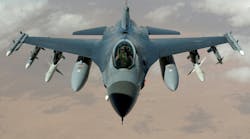By John Keller, chief editor
Military & Aerospace Electronics
The U.S. manned space program over the past half-century often has been a gripping saga of human courage and achievement in the face of often-staggering challenges. The program's accomplishments — the first human on the moon, two orbiting laboratories, and a fleet of reusable space shuttles — stand as potent symbols of the American can-do spirit.
Yet despite its rich history of striving beyond expectations, I think it's time to take a hard look at our manned space program and its future. Manned space missions are expensive, dangerous, and quite frankly of dubious value. This is certainly not to suggest that the United States abandon its peaceful explorations of space — far from it. But automation, communications, and data-processing technologies are available at costs reasonable enough for U.S. leaders to continue the space program almost exclusively with unmanned systems.
The recently completed investigation into the space shuttle Columbia accident last winter brings into focus the reasons we must consider alternatives to manned space flight. Investigators concluded what most of us knew already knew about what caused the shuttle Columbia to disintegrate on re-entry and scatter debris over more than half a continent.
A chunk of insulating foam broke of the shuttle rocket's main fuel tank and hit Columbia's left wing, damaging the spacecraft's heat-protecting tiles such that superheated air on re-entry melted a portion of the shuttle wing's metal structure, causing the wing to break off, and starting a chain reaction that caused the remaining spacecraft to break into countless pieces. No one aboard could have survived.
Yet investigators took their probe further to take NASA's very culture to task for facilitating the accident. Crushing pressure to keep the agency's manned space program on time and on budget — in an environment where there wasn't nearly enough of either — induced NASA officials to cut corners where safety and system reliability were concerned. The imperative to continue putting people into space at the cost of safety took the highest priority, and at the end of the day, what did this gain for us?
The most compelling argument against using human beings for space missions in the foreseeable future is we simply don't need to. Automation and robotics enables us to explore space remotely. The NASA robotic missions to Mars make this abundantly clear. We need to ask what is the cost of putting humans in space, and what is the payoff? More to the point, what can we gain from sending people into space that we couldn't get with unmanned systems? Finally, is the cost of sending people into space worth it? Today, I think the answer is probably not.
First, manned space travel is still dangerous. Since 1967, 17 people have died during three disastrous U.S. space missions. Three Apollo 1 astronauts died in 1967 on the launch pad when their space capsule caught fire. The space shuttle Challenger exploded shortly after launch in 1986, killing all seven aboard. Earlier this year the space shuttle Columbia — the first shuttle in the fleet — broke apart on re-entry killing the seven-member crew. The number of people killed during Soviet/Russian space missions over that same period, incidentally, is four.
Second, manned space travel, arguably, is prohibitively expensive. Space shuttle launches can cost as much as $360 million apiece. Much of that expense goes to designing compartments, components, and life-support systems that can keep humans alive and healthy in the forbidding environment of space. Is the cost of training and supporting human beings for space missions worth it, when we consider what unmanned systems could contribute to space exploration?
Third, manned space missions are not nearly as useful as they were supposed to be. After the Challenger disaster 17 years ago Congress barred NASA from using the shuttle to place commercial satellites in orbit. Leaders of the U.S. Defense Department soon after quit using the shuttle to put military satellites in orbit. This left shuttle crews with precious little to do — outside of building and supporting the International Space Station — to justify the cost and risk to life of manned missions.
The need for the Space Station is another issue entirely, but suffice it to say that the station's future needs to be considered with a critical eye, given its ever-scaled-down mission and questionably adequate budget to support the program in the foreseeable future. Even if convincing reasons exist for completing and operating the Space Station, NASA could do much of that work with unmanned spacecraft and robotics.
With all this said, even more issues than money and risk should be on the table when we consider the future of the manned space program. Many of these issues, quite frankly, give me pause when I argue against continuing manned space missions.
The history of America is the story of risk takers, many of who willingly gave their lives in the interests of exploration and innovation. This cultural trait of Americans — the willingness time and again to throw the dice on the chance of a big payoff — is an integral part of who we are as a people.
Without taking monumental risks, the first Americans never would have crossed the land bridge that led them from their ancestral homes in Asia towards new frontiers in North America.
So it has been with space exploration. Men and women have willing laid down their lives in the interests of pushing into space. The costs in money and human lives are convincing reasons enough to scale back — or even curtail — the manned space program.
Still I wonder, what do we as Americans lose when we stop taking the kinds of monumental risks that have pushed us so far ahead and that have largely defined us since our beginnings? Could keeping that spark alive make the risks and cost all worth it? I wish I had the answer to that one.


